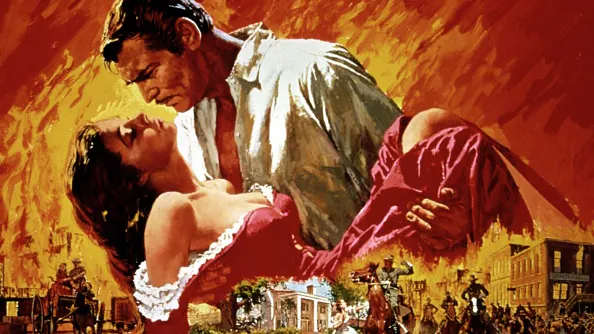Last year, Disney Plus announced it would attach “content warnings” to old children’s programming which has been deemed racially offensive. In retrospect, that now looks like a precursor to this June, when HBO erased the Oscar-winning classic Gone with the Wind (1939) from its streaming service after a complaint about its supposed racism in the Los Angeles Times by screenwriter Jon Ridley. The movie can now be viewed once more on HBO Max, but only after a four-and-a-half-minute-long video introduction by an “African American cinema expert” to “contextualize” the racial attitudes portrayed in the film.
Other streaming services have affixed similar warnings to the movie so no one will have to experience the horror of consuming art with an open mind.
These are extravagant prostrations by major corporations to “cancel culture,” a racialist system of modern speech codes which make it increasingly difficult to say or publish anything in mainstream outlets without first ensuring it conforms to pre-approved leftist pieties. It all feels highly Soviet, and references to George Orwell’s 1984 have been thick on the ground among conservatives these days.
But cancel culture is older than Communism, and we in the West were warned of its dangers long ago by a writer who far predates Orwell: John Milton. Milton, the greatest epic poet of the English language, dramatized the fall of man in his masterwork, Paradise Lost. But he began his career as a revolutionary and a pamphleteer. He lived through one of England’s most tumultuous eras, the civil wars of the 1600s in which Parliament seized power from King Charles I because of their rage at his excessive taxation and tyrannical overreach.
Milton was on parliament’s side, but he was disappointed to see some of his fellow revolutionaries becoming just as oppressive and autocratic as the king once they took power. In particular, Milton deplored a law passed in 1643, the Licensing Act, which required that every new publication should be read by the government before being printed.
This was an era of breakneck publication, a time in which new ideas were made suddenly possible by the invention of the printing press. It was the birth of newspapers, the heyday of firey political pamphlets and of Protestant reformation. Milton was appalled to imagine that the energy of this electric moment would be stifled by inept bureaucrats with illegitimate power over the free speech of the English people.
So in 1644, Milton wrote the Areopagitica, an impassioned address to Parliament which remains to this day one of the central arguments for freedom of speech and expression. It’s well worth reading in full, but one particular section merits our close attention today.
Even though licensing was mainly meant to constrain modern publication, Milton wrote, it wouldn’t stop there. Rather, “if the work of any deceased author, though never so famous in his life time, and even to this day, come to their hands for licence to be Printed, or Reprinted, if there be found in his book one sentence of a ventrous [daring or risky] edge, utter’d in the height of zeal…they will not pardon him.”
In other words, constraints on free speech, once allowed, will end up revising or silencing every idea — even the ideas of the past — to fit with the standards of the present. Nothing will ever be published except writing which conforms exactly to the morals of the current government and the ruling classes. And so the great writing of the past “shall to all posterity be lost,” and the government will perpetrate “a treacherous fraud against the orphan remainders of worthiest men after death.”
Already in the 17th century, Milton could see what we in the 21st are now learning the hard way: if your politicians and your cultural elite will not allow any dissenting ideas to be published, they will eventually reach back into the past to “contextualize” or simply silence great works which do not suit their hyper-modern ideas. And once that’s done, there’s no point in reading old books at all — why even study history anyway, if not to encounter a mindset that’s different than your own?
HBO, Disney, and the rest of the cancellation mob do not know the nature and the power of the fire with which they are playing. If left unchecked, it will go blazing through every great library, every major archive of the West, until nothing is left but dust and ashes. This hideous revisionism is now already threatening to deprive us of all our great literary and artistic heritage — as Milton knew it would.
More from Spencer Klavan: ‘Tyranny For Your Own Good’: C.S. Lewis On The Philosophy Behind COVID Lockdowns
Spencer Klavan is host of the Young Heretics podcast and assistant editor of the Claremont Review of Booksand The American Mind. He can be reached on Twitter at @SpencerKlavan.

Continue reading this exclusive article and join the conversation, plus watch free videos on DW+
Already a member?

.png)
.png)

